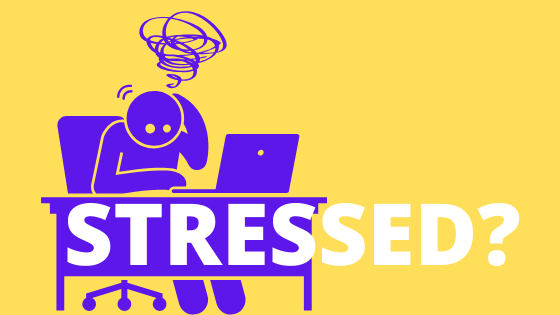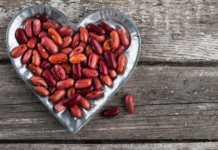The views expressed here are those of the author and not necessarily those of The Hope or its sponsor Kibow BiotechⓇ. Always consult with a qualified healthcare professional prior to beginning any diet or exercise program or taking any dietary supplement. The content on our website is for informational and educational purposes only.
Humans are never really alone. We’re covered, inside and outside, with microorganisms that make our bodies their own. Luckily for us, many of these minuscule hitch-hikers are helpful! Take our gut microbiome: the beneficial bacteria that live there work with the immune system, aid digestion, and even affect our moods. They also react just as negatively to stress as the rest of us!
Our Special Connection
Humans are so connected to their guts that we have particular phrases to explain specific stomach-related sensations. When we’re nervous, we get “butterflies.” When presented with a problem, we can get a “gut instinct” that helps us make a decision. When we’re scared or anxious, we can feel a “pit” in our stomach like our fears have taken on weight. These feelings are thanks to our “Gut-Brainin Connection.”
But, what happens when life factors cause chronic stress, and we feel these “butterflies” and “pits” more and more frequently? Unfortunately, there is a myriad of negative consequences to us and our gut.
That’s why, in our current stressful situation, we need to be more aware of stress, the negative impacts it can have on our health, and how to manage it.
What is the Gut Microbiome?
Gut Microbiota for Health explains that the gut microbiome is a term that describes the vast amounts of bacteria (viruses and fungi too), that live within the human gastrointestinal (digestive) tract. The beneficial bacteria that reside there assist with digestion, break down fibers into fuel for our gut’s cells, help make vitamins, and even “talk” with the intestinal lining cells to aid in the immune response. (1)
What is the Gut-Brain Connection?
Our guts are responsible for producing up to 95% percent of the body’s serotonin, a neurotransmitter that helps us feel happy. Additionally, the gut “communicates” with the nerves in the lining of the stomach. This is a two-lane highway, though. Just as the bacteria in the gut communicate with the brain, the brain communicates with them! (2)
What is Stress?
Stress is how our mind and body react to danger. It’s the classic fight or flight response. The problem is, our brains are not great at differentiating between a physical threat, say a tiger or a car speeding at you, and an emotional or perceived threat, like an angry boss or an embarrassing moment. (3)
Either way, the body reacts the same.
The Stress Reaction
When you feel threatened, the body releases a flood of hormones, like adrenaline and cortisol. As a result, heartbeat increases, and fats and sugar are immediately used for energy to give us the best chance at surviving- either by running for the hills or staying and fighting.
The American Psychological Association shows that chronic stress can lead to long-term health problems. For example, when stressed, blood pressure increases. Over time this can lead to high blood pressure, which can then cascade into other illnesses. (4)
Stress, the Gut, and the Brain
The constant communication between the gut and the brain means that stress does not affect one without the other. The flight or fight hormones enter the intestine where they disturb the microflora living there. They, in turn, will send messages to the brain that impact mood- remember, serotonin is mostly manufactured here in the gut. These hormones may also reduce antibody production. (5)
According to The Anxiety and Depression Association of America, The chemical imbalances can have the following physical effects:
- Indigestion
- Stomach cramps
- Diarrhea
- Constipation
- Loss of appetite
- Unnatural hunger
- Nausea
- Irritable Bowel Syndrome (IBS)
- Peptic ulcers (5)
6 Stress Management techniques
Don’t let de-stressing stress you out.
One of the best things you can do for your body is to manage your stress- especially during an intense situation. Learning and employing coping skills doesn’t happen overnight, though. So, be kind and forgiving to yourself. Try some of these stress management techniques and see what works for you and what doesn’t.
Finally, don’t be afraid to get some professional help!
If you or someone you know is having suicidal thoughts, seek help right away. The National Suicide Prevention Lifeline in the United States is 1-800-273-8255. For support outside of the states, click here.
Sponsored By: Kibow BiotechⓇ 
Works Cited
- Information About Gut Microbiota. (2020, February 28). Retrieved from https://www.gutmicrobiotaforhealth.com/about-gut-microbiota-info/
- Tang, L. (2019, February 12). How the bacteria in your gut affect your mind and body. Retrieved from https://abcnews.go.com/Health/bacteria-gut-affect-mind-body/story?id=60908589
- Harvard Health Publishing. (n.d.). Stress. Retrieved from https://www.health.harvard.edu/topics/stress
- American Psychological Association. (2019). Stress effects on the body. http://www.apa.org/helpcenter/stress-body
- Goodman, K. (n.d.). How to Calm an Anxious Stomach: The Brain-Gut Connection. Retrieved from https://adaa.org/learn-from-us/from-the-experts/blog-posts/consumer/how-calm-anxious-stomach-brain-gut-connection




